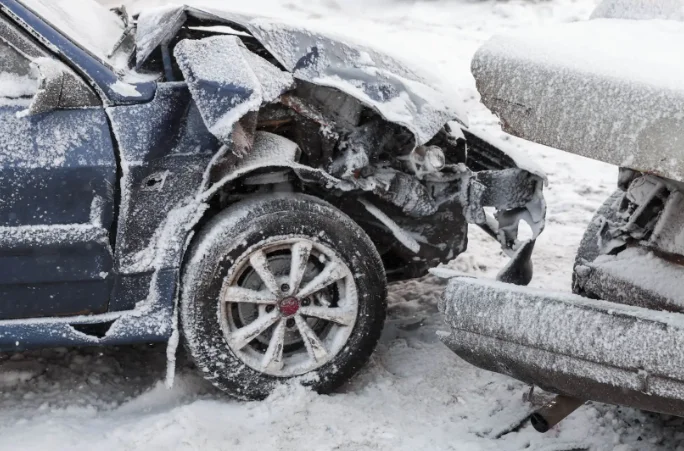Bad weather conditions significantly impact driving safety and can increase the likelihood of car crashes. In Louisville, weather events such as heavy rain, snow, ice, and fog can create hazardous driving conditions that lead to accidents. Understanding how bad weather affects car crash claims is essential for those involved in such incidents.
For individuals navigating the complexities of car crash claims, consulting with Dolt, Thompson, Shepherd & Conway, PSC accident lawyers can provide valuable guidance and support to ensure fair compensation and effective legal representation.
Increased Risk of Accidents
Bad weather significantly increases the risk of car accidents due to reduced visibility, slippery roads, and impaired vehicle performance. Rain can lead to hydroplaning, where tires lose contact with the road surface, while snow and ice can cause vehicles to skid and lose control. Fog can drastically reduce visibility, making it difficult for drivers to see other cars and road hazards, thus increasing the likelihood of collisions.
Slowing down, maintaining a greater following distance, and using headlights appropriately can help mitigate some risks associated with adverse weather. Drivers should also be prepared to adjust their driving behavior in response to rapidly changing weather conditions to ensure their safety and the safety of others on the road.
Failure to adjust driving behavior in adverse weather can result in accidents, and determining fault in these situations can be complex. Such incidents often require thorough investigation and expert analysis to understand the contributing factors and assign responsibility accurately.
Determining Fault in Weather-Related Accidents
Determining fault in weather-related car accidents can be challenging. While bad weather contributes, drivers are still expected to exercise reasonable care. This includes reducing speed, maintaining a safe following distance, and appropriately using headlights and windshield wipers.
In some cases, multiple parties may share liability. For example, if one driver fails to adjust their speed for icy conditions and another is driving with worn tires, both may be found partially at fault.
Impact on Insurance Claims
Weather-related car accidents can complicate insurance claims. Insurers may argue that the accident was unavoidable due to the weather conditions, potentially reducing the compensation offered. However, drivers are still responsible for adjusting their behavior to mitigate risks.
Gathering evidence from the scene, such as photographs of road conditions, weather reports, and witness statements, is essential to strengthening an insurance claim. This documentation can help demonstrate that the other driver’s negligence contributed to the accident despite the bad weather.
Importance of Prompt Reporting
Promptly reporting a weather-related car accident to your insurance company is crucial. Delays can lead to complications and potential disputes over the cause and extent of the damage. Providing accurate and detailed information about the weather conditions at the time of the accident can support your claim.
Additionally, seeking legal advice early in the process ensures that all necessary steps are taken to protect your rights and maximize your compensation. Accident lawyers can assist in communicating with insurance companies and negotiating fair settlements.
Role of Expert Witnesses
Expert witnesses can play a vital role in weather-related car crash claims. Accident reconstruction experts can analyze the scene, weather conditions, and vehicle damage to determine how the accident occurred and who was at fault. Meteorologists can provide detailed weather reports and testify about the conditions that contributed to the accident.
These expert insights can be crucial in building a solid case, especially when fault is disputed. Engaging the services of accident lawyers can help identify and retain qualified experts to support your claim.
Impact on the Litigation Process
Bad weather can also impact the litigation process in car crash claims. Courts may consider the weather conditions when determining liability and damages. It is essential to present a comprehensive case that includes evidence of the weather’s impact and any negligent behavior by the other driver.
Legal representation is critical in navigating the litigation process. Experienced accident lawyers can help present your case effectively, ensuring that all relevant factors are considered and you receive the compensation you deserve.
Challenges in Proving Negligence
Proving negligence in weather-related accidents can be challenging. Here are the key points to consider:
- Reasonable Care: You must demonstrate that the other driver failed to exercise reasonable care given the weather conditions. This involves showing that a reasonably prudent driver would have acted differently under similar circumstances.
- Speed for Conditions: One common factor is driving too fast for the conditions. Even if the driver was within the speed limit, they may still be negligent if they were driving too fast for the weather conditions, such as heavy rain, snow, or ice.
- Appropriate Safety Measures: Failing to use appropriate safety measures, such as headlights, windshield wipers, or hazard lights, can also indicate negligence. Not taking these precautions can contribute to an accident in adverse weather conditions.
- Vehicle Maintenance: Poor vehicle maintenance can be another factor. This includes having bald tires, faulty brakes, or malfunctioning windshield wipers, which can impair a driver’s ability to handle weather-related hazards.
- Burden of Proof: The burden of proof is on the plaintiff to show that the other driver’s negligence directly caused the accident. This requires a clear connection between the driver’s actions and the resulting harm.
Compensation for Damages
Victims of weather-related car accidents may be entitled to compensation for various damages, including medical expenses, property damage, lost wages, and pain and suffering. The amount of compensation can be influenced by the degree of fault assigned to each party and the severity of the injuries sustained.
Accident lawyers can help assess the full extent of your damages and negotiate with insurance companies to ensure you receive fair compensation. They can also represent you in court if a fair settlement cannot be reached through negotiation.
Preventative Measures
While bad weather cannot be controlled, drivers can take preventative measures to reduce the risk of accidents. This includes maintaining proper tire tread, ensuring functional windshield wipers, and driving appropriately during adverse weather conditions.
Understanding the legal implications of weather-related accidents can also help drivers make informed decisions if they are involved in a crash. Consulting with accident lawyers can provide valuable insights into best practices and legal rights.

Ruby Stauffer is a prominent technology blogger known for her insightful analysis and in-depth reviews of the latest tech trends and gadgets. Her blog has become a go-to resource for tech enthusiasts seeking reliable information and expert opinions on the ever-evolving world of technology.

